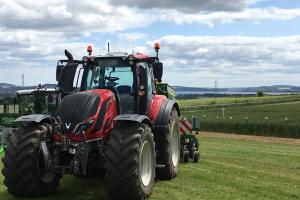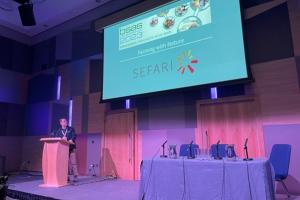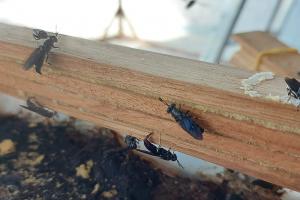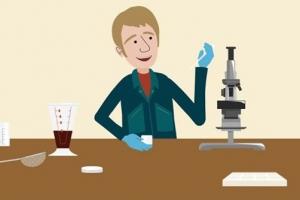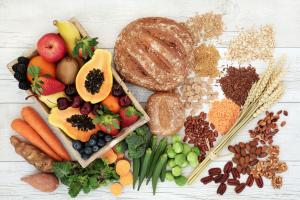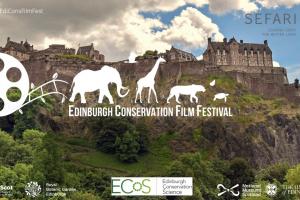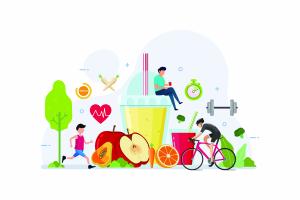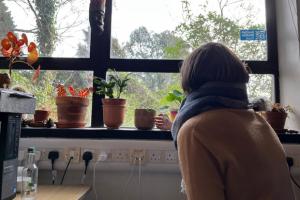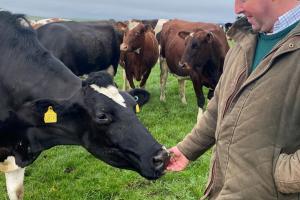On the 4th of July Arable Scotland returns for the 5th year, a field event which is becoming a firm favourite in the calendar with everyone interested in food production. Farmers, producers, researchers and the policy community come together to discuss key issues such as innovative and sustainable farming.
SEFARI researchers and SEFARI Gateway colleagues will be joining in the conversations at Arable Scotland again. In this blog, find out more about which colleagues will be there and how our research is supporting the arable sector.
SEFARI Gateway was delighted to sponsor and host a session at the British Society of Animal Science (BSAS) Conference at the Birmingham International Conference Centre at the end of March. Its annual conference regularly attracts several hundred delegates, drawn from across academia and the livestock sector.
BSAS is a charity that ‘works to improve the understanding of all aspects of animal science and to ensure research and knowledge transfer has a practical and beneficial application’, so you can see the obvious parallel with SEFARI!
Scotland has the potential to become a global leader in the insect farming and industry, which could help with circular economy objectives, reducing food waste, and support the aquaculture, agriculture, and food and drink sectors. Equally, as there is an increasing demand for sustainable protein sources for animal feed in the country, insects could reduce our dependence on imported protein sources and create opportunities for local production.
Roundworms are an ongoing challenge for sheep farmers in Scotland, threatening the health and welfare of animals. Whilst acute infection can be fatal, most roundworm infections result in poor growth rates and reduced production efficiency. To meet upcoming environmental targets, roundworm infections must be controlled effectively and sustainably.
In Scotland, the prevalence of those overweight and obese remains high. There are many lifestyle factors that contribute to obesity, but, in general a major contributor is the diet is too high in calories, and contains too much processed food, fats, sugars, and salt and too little fibre that is found in wholegrains and fruit and vegetables.
The imbalance in the way climate change is affecting women has risen to the surface over the last few years and it is a topic I have recently become more aware of too. This much needed attention is shining a spotlight on our decision-making, policies, research and how it could impact our future.
The Edinburgh Conservation Film Festival was founded last year with the aim of raising awareness of the multitude of amazing biodiversity conservation efforts that are taking place around the world, as well as providing a platform to highlight themes relevant for biodiversity conservation. More than anything, we want the festival to convey positive messages of what we can achieve for the benefit of biodiversity conservation and the health and wellbeing of our societies.
The health behaviour of people living in Scotland, in terms of the types of food bought, the amount of alcohol consumed and the amount of physical activity done, is subject to many influences, and the COVID-19 pandemic may have influenced these behaviours, both in the short and the long term.
In this blog, find out about SEFARI research that is investigating what impact the pandemic might have had on our dietary behaviour and the how this could affect our health and well-being, now and in the future.
Delivering a sustainable food system is one of the key challenges of our generation and requires ambition to think beyond traditional production models. There is already no doubt we will need to produce our food in a more efficient and environmentally friendly way and my PhD project at the Rowett Institute (University of Aberdeen) is investigating the potential to scale-up production of climate resilient Scottish wild species in three novel agri-systems: forestry, vertical soil-based urban farming and pasture.
Fineview, a dairy farm managed by the Clark family in Dumfries and Galloway, is part of the innovative First Milk dairy cooperative which aims to deliver healthy fresh milk on sound environmental principles. Why not take a virtual tour and hear how delivering quality milk products needs a nurtured healthy soil, the encouragement of biodiversity, healthy cows and a sustainable farm enterprise.
